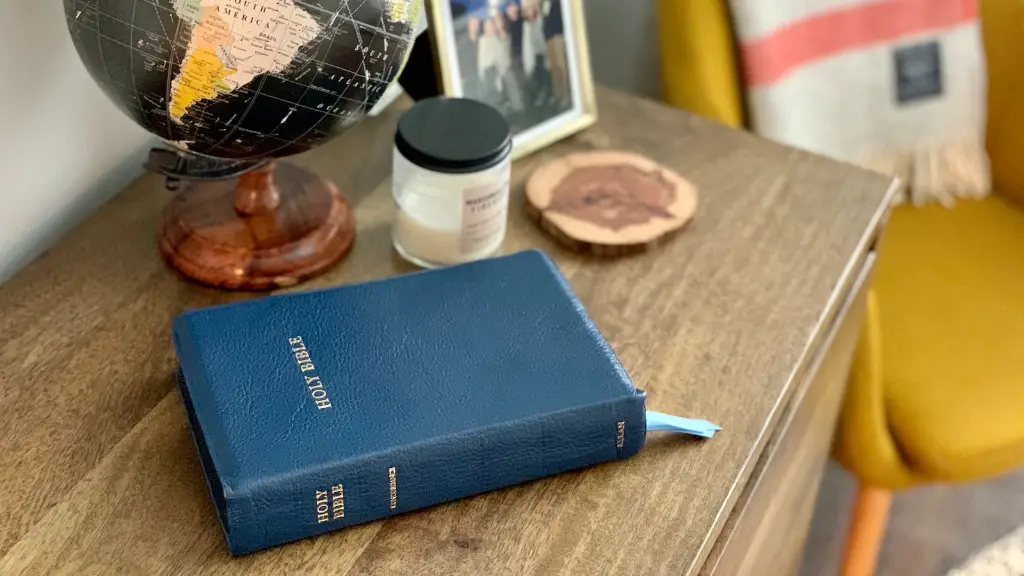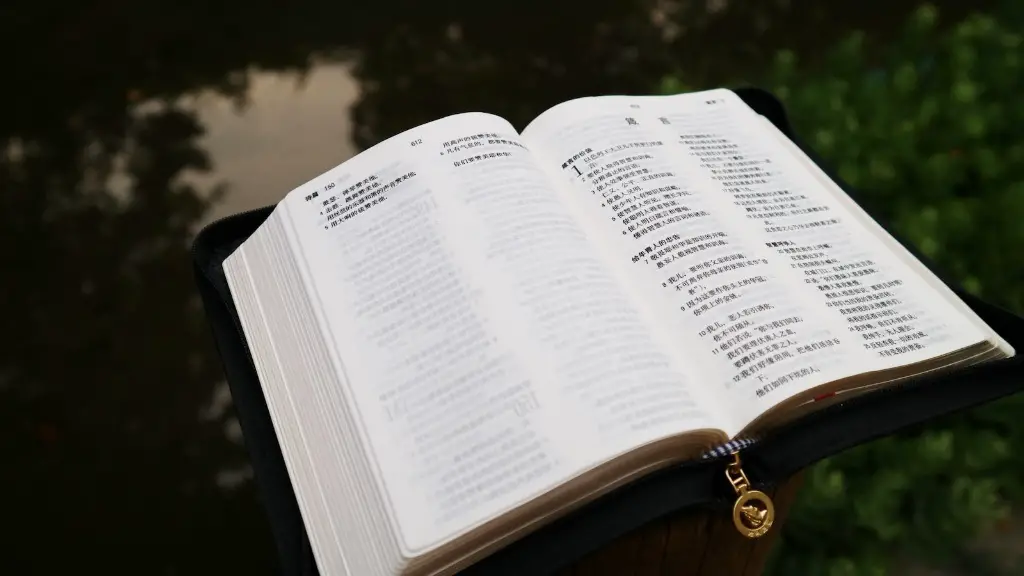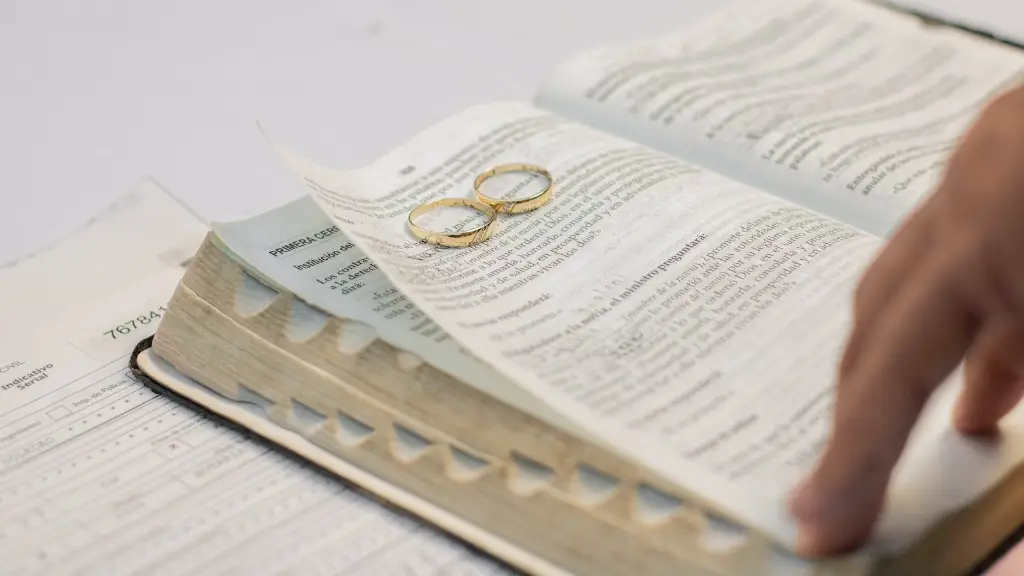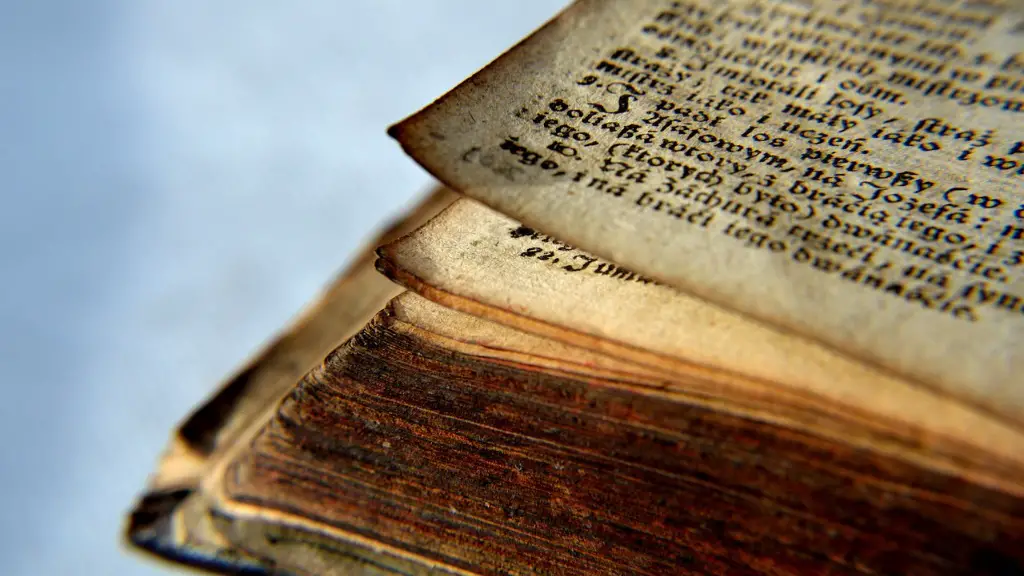Yom Kippur is one of the most important holidays in the Bible. It is the day when God forgives the sins of his people. This holiday is also known as the Day of Atonement.
Yom Kippur is the Day of Atonement. It is a day set apart for the Israelites to achieve atonement for their sins.
What is Yom Kippur called in the Bible?
The Bible refers to Yom Kippur as Shabbat Shabbaton, which means “Sabbath of Solemn Rest” or “Sabbath of Sabbaths.” This is because even though the holy day may fall on a weekday, it is on Yom Kippur that solemnity and cessation of work are most complete.
Yom Kippur, the Day of Atonement, is a day for Jews to ask for forgiveness for their wrongdoings from God and from other people. Jews try to focus on their souls rather than their physical bodies on this day.
What does the Bible say about the Day of Atonement
The Day of Atonement is a day when the Israelite nation comes together to fast and rest. This day symbolizes atonement for the sins of the whole nation.
The Jewish tradition of fasting on Yom Kippur is based on certain verses in the Torah. In Leviticus 23:27, the Torah states that the Day of Atonement should be a day of self-denial. This self-denial is accomplished through fasting. Fasting on Yom Kippur is a means of repenting for one’s sins and seeking forgiveness from God.
Do Christians acknowledge Yom Kippur?
It is not common for mainstream Christians to celebrate Yom Kippur (the Day of Atonement). The New Testament refers to the Day of Atonement in Acts 27:9, but does not specify whether or not Christians were celebrating it.
The rules of Yom Kippur are:
1. Starting at sundown, Yom Kippur is observed for a 25-hour period.
2. The five prohibitions are: eating and drinking, anointing the body with moisturizer or oil, bathing, sexual relations, and wearing leather shoes.
What do you say to people who celebrate Yom Kippur?
The “Shana Tova” greeting is a way of wishing someone a Happy New Year. This greeting is used on both Rosh Hashanah and Yom Kippur.
This holiday is a time for reflection and atonement. Be mindful of how you speak to others, as it is considered rude to wish someone a “happy” Yom Kippur.
What is the difference between Yom Kippur and the Day of Atonement
Yom Kippur is the holiest day of the Jewish year. It is the day of atonement, after the Jewish new year, Rosh Hashanah. On this day, Jews ask God for forgiveness for their sins, to secure their fate. It is also known as the Sabbath of Sabbaths.
The day of atonement is a special day observed by Christians and Jews. It is a day of fasting and prayer, and is considered to be a day of great importance. Christians believe that on this day, God forgives the sins of His people and cleanses them from all unrighteousness. Jews believe that on this day, their sins are forgiven and they are released from the guilt and punishment of their past deeds.
Why is Atonement important for Christians today?
Atonement is important because the atoning death of God’s son was the only way to bring salvation to humanity. This is how liberal Christians understand the atonement, and it is what inspires them to live a good Christian life. Living the Christian life will bring them salvation.
It is a very solemn holiday, observed by fasting and praying.
Who Cannot fast Yom Kippur
Fasting is a spiritual practice that is not expected of children under the age of thirteen, pregnant women, or anyone with a medical condition that could be exacerbated by fasting. The purpose of fasting is not to create a health hazard, but rather to promote spiritual growth. Fasting is not an all-or-nothing proposition, and people are encouraged to fast according to their ability and understanding.
No matter how you spend the rest of your day, breaking your Yom Kippur fast with a delicious meal is a must. Bagels, quiche, fish platters, honey cake and sweet kugel are just a few of the dishes people indulge in after completing their fast. So break your fast in style with a delicious feast!
Is it rude to wish someone a Happy Yom Kippur?
Yom Kippur, or the “Day of Atonement”, is the holiest day of the year in Judaism. It is a day of fasting, prayer and repentance. Unlike Rosh Hashanah, which comes just a few days before Yom Kippur, the day is not necessarily joyous and festive, but solemn and reflective. Consequently, it is not customary to greet those observing with “Happy Yom Kippur”, although there are not necessarily repercussions if you do that.
The day is spent fasting and in prayer, and it is believed that on this day, Jews are forgiven for their sins.
Is Yom Kippur Catholic
This is the holiest day of the Jewish calendar. It is considered by Jews to be the day in which every individual is judged by God and thus it is a solemn day marked by fasting, prayer and repentance.
On Yom Kippur, Jewish law prohibits eating and drinking, showering and cosmetics, wearing leather shoes (they denote wealth and prosperity) and sexual contact. The intention is twofold, to clear out a space for contemplation and to imitate death and rebirth.
Conclusion
Yom Kippur is the day of atonement in the Bible.
Yom Kippur is the day of atonement in the Bible. It is a day of fasting and repentance. It is a day when people ask forgiveness for their sins.





